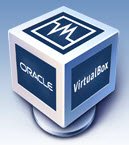 Just a quick comment about something I noticed while rebuilding a test VM on my Mac. There is a long lead up to this, so bear with me…
Just a quick comment about something I noticed while rebuilding a test VM on my Mac. There is a long lead up to this, so bear with me…
Background
I use VirtualBox on three different host operating systems.
Mac : My main desktop is a Mac, so most of my tests are done using Oracle 12c on Oracle Linux 6 or 7, running under VirtualBox. Most of the VMs I use are quite old, but I keep the DB and OS patched, and you know I religiously update VirtualBox. 🙂 The point is, I rarely do fresh installations on Mac.
Linux : My big(gish) server runs Oracle Linux 6 as the host OS. If I’m doing a RAC installation, I tend to do it on this server as it is fast and has lots of separate spindles. Once again, all the database installations on this machine are done using VirtualBox VMs.
Windows 7 : At work I use Windows 7 for my desktop. I tend to test most things locally, before doing them for real. As a result, I’m often using the Oracle DB, on Oracle Linux 6 or 7, running under VirtualBox.
If you follow the blog, you will know I’ve recently released some new RAC articles. All those were done on an Oracle Linux 6 host, using VirtualBox to fire up the VMs. Everything worked fine. For one of the RAC articles, I connected to work and did a run through on my Windows PC. It worked fine, if a little slow.
So fresh installations of Oracle 12c (12.1.0.2) worked fine on Oracle Linux 7, running under VirtualBox 5.0.4 on both a Linux and Windows host OS.
Getting to the point
The other day I started a rebuild (from scratch) of a test VM on the Mac and I ran into a few problems with the database installation and the DBCA. I added a note about them here. The interesting thing is, I used the same ISO for the Oracle Linux installation, the same zips for the Oracle DB installation and the same version of VirtualBox (5.0.4). The only difference between this and the other installations I’ve done recently is this one was using a Mac as the host. The installation and DBCA issues only happen when the host machine is a MAC.
I did a little Googling around and it seems some other people have noticed this and pointed to the switch from VirtualBox 4 to 5 as when it started. I guess I didn’t see this before as I’ve just been upgrading the existing VMs, not installing new ones.
Just thought it was worth mentioning, as other Mac users may be following my installation articles and thinking they don’t work. 🙂
Cheers
Tim…
PS. I have no idea why the Mac spin of VirtualBox causes this. I’m just a user. 🙂
PPS. This is not VirtualBox hate. I love it! 🙂